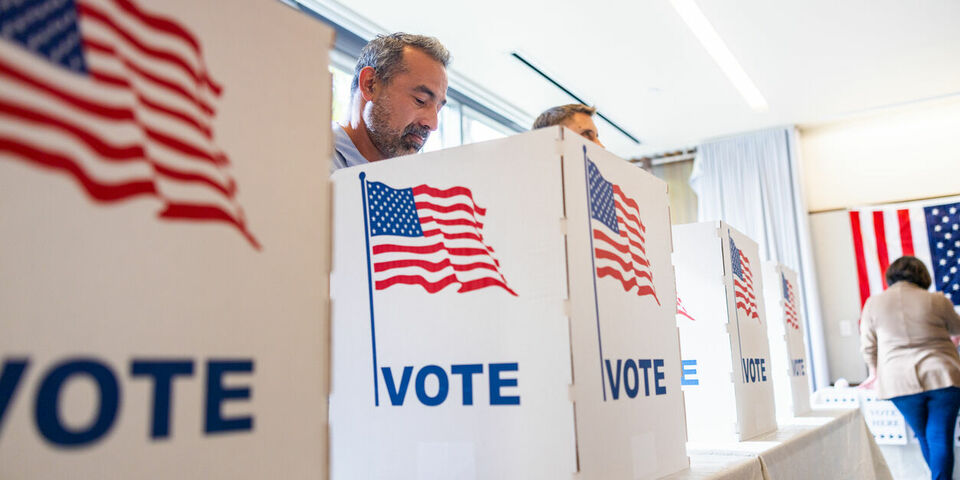The United States are deeply divided. So deeply, in fact, that Democrats and Republicans hardly speak the same language anymore. Even when it comes to higher education and scientific research, positions are far apart.
Kamala Harris (Democratic Party)
Current Vice President Kamala Harris wants to make higher education affordable for more students, for example, by making community colleges free. These are mostly two-year degree programs at publicly funded higher education institutions.
Her party also wants to tackle high student debt with waivers and means-tested repayment. There are many private universities in the United States and costs can be high – too high, many Democrats believe.
As state prosecutor, Harris won a lawsuit against a private chain of educational institutions that allegedly defrauded students of poor education. The institution had to pay $1.1 billion in fines and damages.
Harris also has an eye for diversity in higher education. In recent years, the U.S. government has tried to give support to universities that traditionally educate many minorities.
The vast majority of scientists and teachers seem to keep their fingers crossed for her victory, a poll by news website Inside Higher Education showed. But they don't want to force their views on their students, was another result.
Yet much of science is taking a position anyway. “The world needs an American president who respects evidence,” scientific journal Nature writes bluntly.
Indeed, she does the latter. For example, Harris acknowledges the evidence for climate change and speaks of an existential threat. She also said politicians could take an example from scientists. “Then we would get more done,” she said.
Donald Trump (Republican Party)
Trump once ran his own university, although it should not actually be called a university. It involved questionable courses in real estate investment. Former students and New York State dragged him to court. Trump settled that case when he became president in 2016.
As president, he wanted to make strong cuts in scientific research, although this was blocked in Congress, where some of the Republicans also saw little point in this. But within his party, he is certainly not alone in his drive to curtail science.
Trump's candidate for vice president is J.D. Vance, who gave a lecture in 2021 titled “Universities are the enemy.” He wants to attack universities “fairly and aggressively” because they would lend credibility to ridiculous beliefs, he said at the time.
In line with that thinking, Republicans in the House of Representatives this year came up with a bill against “woke” higher education. They just can't get it through the Senate, where Democrats have a majority. The idea of the proposal is that institutions lose funding if they offer controversial education, such as gender studies.
That bill also requires educational institutions to give more space to meetings and protests, meaning that controversial speakers should be allowed access to campus, regardless of security charges. Incidentally, this is at odds with Republicans' fierce criticism of student demonstrations against Israel's war in Gaza.
It could all go much further, if the much-discussed Project 2025 indeed turns out to be a blueprint for Republican plans, as many fear. It is a document that Trump has distanced himself from, though many of his staff have contributed to it. One plan: abolish the Department of Education so that individual states can take control. In practice, this would mean that Republicans in various states could push their way through, as is already happening a lot around children's books that may or may not be read in school.
Furthermore, Republicans want to roll back the current policy on student loans. There will be fewer options for student debt forgiveness, and income-based repayment will also receive less support.
Respect for facts, truth and science Trump doesn't really have. He thinks climate change is a hoax. In the corona crisis, he caused a stir with his idea that injecting bleach might help against the corona virus.


Discussion